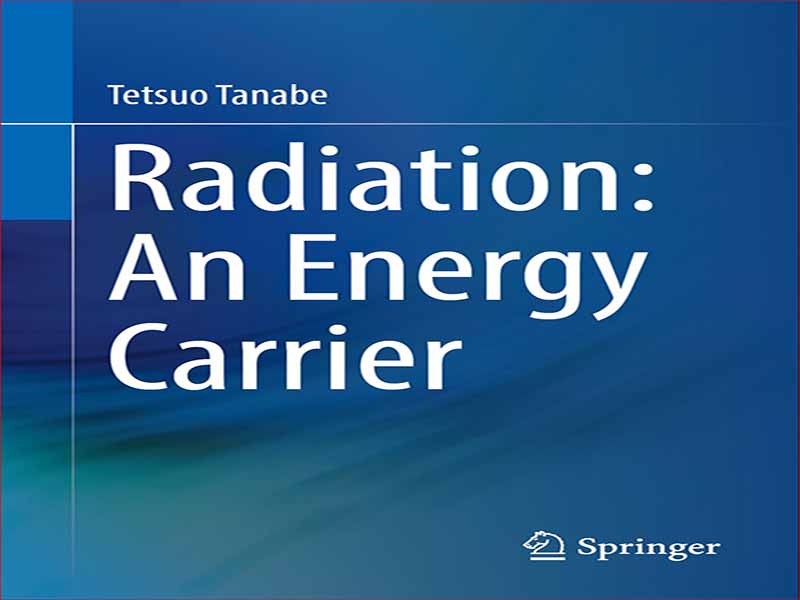- عنوان مجله: Radiation: An Energy Carrier
- نویسنده: Tetsuo Tanabe
- حوزه: حامل انرژی
- سال انتشار: 2022
- تعداد صفحه: 173
- زبان اصلی: انگلیسی
- نوع فایل: pdf
- حجم فایل: 4.56 مگابایت
پس از حوادث هسته ای مانند جزیره تری مایل در ایالات متحده، چرنوبیل در اوکراین و نیروگاه هسته ای فوکوشیما در ژاپن، بسیاری از مردم به دلیل ریزش رادیواکتیو از راکتورهای آسیب دیده تخلیه شدند و خانه های خود را از دست دادند. حتی امروز هم تعدادی از مردم نمی توانند به مکان هایی که قبل از حادثه زندگی می کردند بازگردند. اگرچه تأثیر اولیه این حوادث بسیار بزرگ بود، اما به نظر می رسد آسیب ناشی از قرار گرفتن در معرض تشعشعات به تدریج ناپدید می شود. با این وجود، این حوادث مردم را از قرار گرفتن در معرض تشعشع عصبی تر می کند. تعداد افرادی که احساس می کنند تشعشعات “ترسناک / ترسناک” است، به همراه تعداد افرادی که از پذیرش نیروگاه های هسته ای خودداری می کنند، افزایش یافته است. در واقع، تمام نیروگاه های هسته ای ژاپن برای چندین سال پس از حادثه فوکوشیما در سال 2011 متوقف شدند. در آن زمان، می توان از کمبود برق جلوگیری کرد، زیرا برق تولید شده توسط نیروگاه های هسته ای با برق تولید شده در سال جایگزین شده است. نیروگاه های حرارتی که زغال سنگ و نفت می سوزند. نیروگاه های زغال سنگ و نفت به دلیل اثرات زیست محیطی و مسائل منابع مطلوب نیستند، اما مردم این اقدام موقت را پذیرفتند. در سالهای اخیر، به دلیل نگرانیها در مورد گرمایش جهانی، بسیاری از دولتها تصمیم گرفتهاند نیروگاههای جدید زغالسوز نسازند و سعی کردهاند انرژیهای تجدیدپذیر را که عمدتاً سلولهای خورشیدی و پنجرهها هستند، جایگزین کنند. هر منبع انرژی دارای معایبی است یا خطراتی ایجاد میکند. تعداد افرادی که تحت تأثیر گرمایش زمین قرار می گیرند بسیار بیشتر از تعداد افرادی است که در حوادث هسته ای آسیب دیده اند. به طور کلی، به نظر می رسد که اثرات منفی یا معایب استفاده از فناوری قدرتمند لازم برای حفظ تمدن مدرن با بیمه جبران می شود. نمونه بارز آن تصادفات رانندگی است. تعداد افراد درگیر بسیار زیاد است. با این وجود، اکثر مردم خطر تصادف رانندگی را می پذیرند و خسارت احتمالی خود را با پول بیمه جبران می کنند. از سوی دیگر، به نظر می رسد خطر استفاده از انرژی هسته ای بر مبنایی کاملاً متفاوت از سایر خطرات همراه با استفاده از انرژی یا نیرو مورد بحث قرار می گیرد. بسیاری از مردم از پذیرش راکتورهای هسته ای خودداری می کنند. احتمالاً به این دلیل است که آنها از تأثیرات بعدی قرار گرفتن در معرض تشعشعات می ترسند که ممکن است بعداً برای فرزندانشان از طریق تأثیر ژن ها، خطر ابتلا به سرطان در فرزندان و غیره ظاهر شود، که اکثر مردم معتقدند که تحت پوشش بیمه نیستند. استفاده از انرژی یا توان زیاد همیشه با خطراتی همراه است که انرژی یا نیرو در اثر حوادث به روشی متفاوت از هدف اصلی آزاد شود. بنابراین، ریسک باید توسط ذینفعان تقسیم شود. یکی از دلایل اصلی تردید در استفاده از انرژی هسته ای این است که مردم این اصل را نپذیرفته اند و یا خطر تشعشعات را از این اصل مستثنی می دانند. به نظر می رسد دو دلیل عمده برای آن وجود دارد. یکی این است که مردم بدون داشتن دلیل روشن “تابش” را منصفانه می کنند. مورد دیگر این است که “تابش” مرموز است و ارزیابی خطر دشوار است، یعنی اینکه چه نوع اثراتی رخ می دهد و اثرات قرار گرفتن در معرض تابش چگونه ظاهر می شود. بنابراین، کاملاً طبیعی است که موافقان و مخالفانی در مورد پذیرش انرژی هسته ای وجود داشته باشد. متأسفانه، این بحث اغلب بدون دانش کافی یا درک صحیح از تشعشعات انجام می شود. در این بحث باید امنیت انرژی بلندمدت با دانش کافی یا درک صحیح از تشعشعات در نظر گرفته شود. بر اساس پیشینه کلی فوق الذکر، اولین نسخه ژاپنی این کتاب با هدف کمک به خوانندگان (1) برای درک “تابش”، یعنی اینکه تشعشع چیست یا به چه معناست و چرا تشعشع خطرناک است، (2) برای درک صحیح منتشر شد. که تشعشع حامل انرژی است، و (3) بپذیرید که تابش “ترسناک” نیست بلکه “خطرناک اما قابل کنترل و مفید است.” امیدواریم این ترجمه انگلیسی به خوانندگان در انجام این کار کمک کند. ترجمه چینی نیز توسط انتشارات دانشگاه علم و صنعت چین با نام ISBN 978-7-312-05302-3 منتشر خواهد شد. نویسنده از دکتر ریچارد مور به خاطر نقد نوشتن انگلیسی بسیار قدردانی می کند.
After nuclear accidents such as Three Mile Island in USA, Chernobyl in Ukraine, and Fukushima Nuclear Power Plant in Japan, many people were evacuated and lost their homes, because of radioactive fall-out from the damaged reactors. Even today, a number of people cannot return to the places they lived before the accident. Although the initial impact of the accidents was quite large, the harm caused by exposure to radiation seems gradually disappearing. Nevertheless, these accidents make people more nervous of the exposure to radiation. The number of people who feel that radiation is “scary/fearful” has increased, along with the number of people who refuse to accept nuclear power plants. In fact, all of the nuclear power plants in Japan were stopped for several years after the Fukushima accident at 2011. At that time, a shortage of electricity could be avoided, because the electricity generated by the nuclear plants has been replaced by that generated in thermal power plants burning coals and oil. The coal and oil plants are not desirable due to environmental impacts and resource issues, but people accepted this provisional measure. In recent years, due to concerns about global warming, many governments have decided not to build new power plants burning coal and tried to replace them with renewable energy mostly solar cells and windowpower.Any power source has disadvantages or creates some risks. The number of people who is affected by global warming is far larger than the number of people who suffered in nuclear accidents. Generally, the negative effects or demerits of using powerful technology necessary to sustain modern civilization seem to be compensated by insurance. The typical example is traffic accidents; the number of people involved is quite large. Nevertheless, most people accept the risk of traffic accident and compensate their potential harm by money from insurance. On the other hand, the risk to use nuclear power seems to be discussed on completely different base from other risks accompanying with utilization of energy or power. Many people refuse to accept nuclear reactors. Probably that is because they are afraid of after-effects of exposure to radiation which could appear for themselves later, on their children through influence of genes, cancer risk in offspring and so on, which most people believe, cannot be covered by insurance. Utilization of large energy or power always accompanies some risk when the energy or power is released by accidents in a different way from the original purpose. Therefore, the risk should be shared by the beneficiaries. One of the main reasons for hesitating to use nuclear power is that people have not accepted this principle, or the risk of radiation is considered to be an exception from the principle. There seem two major reasons for that. One is that people fair “radiation” without having clear reason. The other is that “radiation” is mysterious and it is difficult to evaluate the risk, i.e., what kind of effects occur and how the effects of the radiation exposure appear. Therefore, it is quite natural that there are pros and cons on the acceptance of nuclear energy.Unfortunately, the debate is often conducted without sufficient knowledge or correct understanding of radiation. The debate should consider long-term energy security with sufficient knowledge or correct understanding of radiation. Based on above-mentioned general background, the first Japanese edition of this book was published aiming at assisting readers (1) to understand “radiation,” i.e., what radiation is or means and why radiation is dangerous, (2) to get correct understanding that the radiation is carrying energy, and (3) to accept that the radiation is not “scary” but “dangerous but controllable and useful.” Hopefully, this English translationwill help readers to do so. Chinese translationwill be also published by University of Science and Technology of China Publishing House as ISBN 978-7-312-05302-3. The author very much appreciates Dr. Richard More for his review of English writing.
این کتاب را میتوانید از لینک زیر بصورت رایگان دانلود کنید:
Download: Radiation: An Energy Carrier



































نظرات کاربران